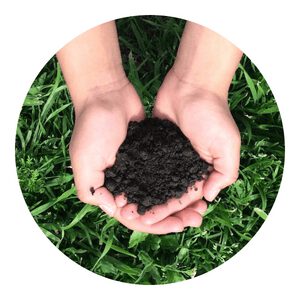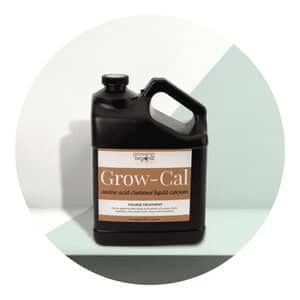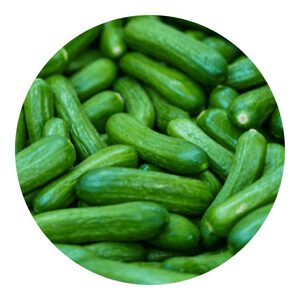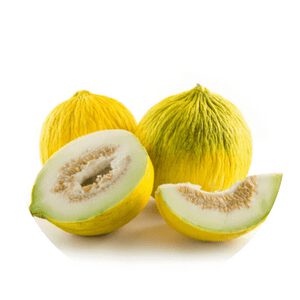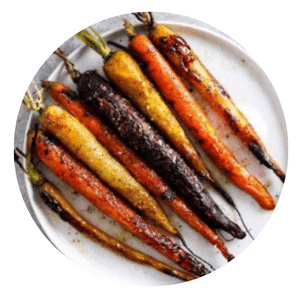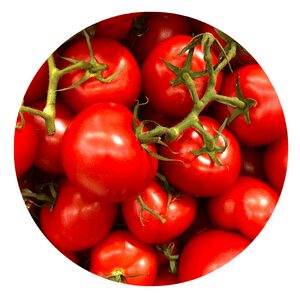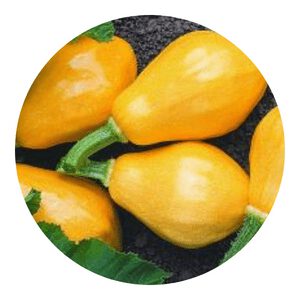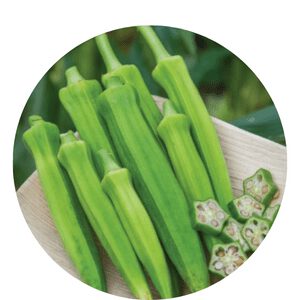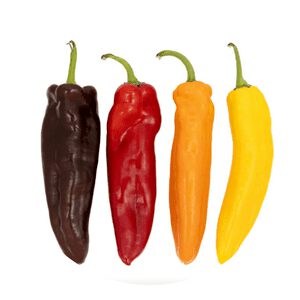Best organic seeds to sow in March
March is finally here, and with it comes the opportunity to sow some of the best organic seeds available.
Whether you’re a seasoned gardener or just starting out, this article will help you pick the perfect seeds for your outdoor space.
From vegetables to herbs and flowers, there’s something for everyone and every garden!
With careful selection and a bit of patience, you can find the best organic seeds for your individual needs in March.
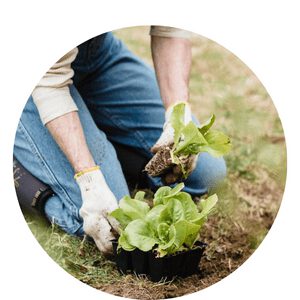
March Seeds Menu
The benefits of organic seeds and why March is a good time to sow them
Organic vegetables are becoming increasingly popular for health-conscious consumers who want to avoid exposure to chemicals and toxins.
March is an ideal time of year to sow organic vegetable seeds, as the mild temperatures and plenty of sunshine can help them flourish into robust crops.
Organic seeds have many benefits compared to conventional varieties.
They are free from genetic modification, which means they contain more nutritional value and taste better than standard supermarket produce.
Furthermore, because they are untreated by chemical fertilisers or pesticides, there is no risk of these substances entering our food chain.
Organic seed varieties also tend to be more resistant to disease – something that is especially important in the early days of spring when plants are just beginning their growth cycle.
Growing your own organic vegetables offers a unique experience that brings peace of mind knowing you’re consuming safe and nutritious food with minimal environmental impact.
Early spring vegetables
As spring approaches, gardeners everywhere are eager to get their hands dirty and start growing vegetables.
March is the perfect time for planning which seeds you should sow for a successful early season harvest.
Popular vegetables that can be sown in March include peas, lettuce and radishes.
These hardy crops can withstand cooler temperatures, making them ideal choices for the early spring months.
Organic vegetable seeds are especially important when it comes to ensuring your produce is free of harmful chemicals or pesticides.
All of these vegetables can be grown organically with the right amount of soil preparation, light and water conditions as well as pest management techniques.
Peas require plenty of sun but shade during hot periods; lettuce needs full sun protection; and radishes grow best in partial shade where they are protected from direct sunlight.
Cool-season flowers
If you’re looking to add some pops of color to your garden, consider sowing cool-season flowers.
They thrive in cooler temperatures, from late winter through spring and into early summer.
Many types of flowers are ideal for these cooler months, including pansies, sweet peas and snapdragons.
These cool-weather flower varieties may be found at local nurseries or home and garden stores.
You can also purchase seeds online for a wider selection of heirloom varieties.
If you decide to start your own plants from seed indoors before the last frost date, choose a mix of colors and flower shapes for greater visual appeal in your outdoor space.
Remember to wait until temperatures remain above freezing before planting outdoors as frost can damage or kill new growth on most types of cool season flowers.
Herbs
Herbs are a great way to add flavor and freshness to any meal.
They can be easily sown in March, with many varieties providing an abundance of deliciousness throughout the spring and summer months.
Parsley, basil, and cilantro are just some of the herbs that thrive in cooler weather.
Parsley is an easy-to-grow herb that is great for adding color to salads or as a garnish.
Growing this plant from seed takes around two weeks before it is ready for harvesting.
Basil produces delicate leaves that have a strong aroma and peppery flavor, making it perfect for soups and sauces.
It typically takes about 10 days for the seeds to germinate when planted in March.
In March when tulips bloom and the sweet apple blossoms start, Organic gardening is in full swing thanks to a few special parts. One such key component are organic seeds which, when planted with care, Will give way to vibrant veggies in gardens everywhere. Beetroots, turnips, carrots, and spinach can all be planted this month; These organic vegetable seeds sow true success for any green thumb. Seeds of zucchinis and squash will bring healthy additions to our plate; When sown in March the deliciousness won't come too late!
Chappy The Gardener
Fruit trees
Fruit trees are a great way to add color and flavor to your outdoor space.
March is the perfect time of year to start planting seeds for many fruit trees, such as apples, pears, and cherries.
With a bit of sun and soil preparation in your garden or allotment, you can begin enjoying these delicious fruits in no time at all.
When selecting suitable seeds for sowing this month, it’s important to choose varieties that will fit well into the local climate and soil conditions.
Also, be sure to consider when the harvesting period will take place; some plants may require more or less time than others depending on their species.
Finally, bear in mind that some fruit tree crops might require extra protection from pests or diseases – be sure to research any requirements before purchasing or planting.
Native plants
Growing native plants in your garden is a great way to help restore local ecosystems, protect biodiversity, and provide food for beneficial wildlife.
Native plants can also increase the beauty of your garden.
Many native plants are well-suited to their region’s climate and soil conditions, making them easier to grow than non-native varieties.
Seeds for native plants such as milkweed, wildflowers, and grasses can often be found in nurseries or online catalogs.
Milkweed is a great choice for any pollinator-friendly garden since it provides nectar and pollen for bees, butterflies, moths and other beneficial insects.
Wildflowers add colorful blooms to your garden while grasses provide structure and texture without requiring much maintenance or water.
Native plants are easy to grow and require little ongoing care once established.
Heirloom varieties
Heirloom varieties are seeds that are traditionally passed down from generation to generation, and they have the unique characteristics of being organic and having a rich history.
Growing heirloom vegetables is preserving the past and connecting with nature by savoring old-time flavors.
With their unique character, these seeds can provide vibrant colors, unusual shapes, and outstanding flavor profiles.
March is the perfect time to start planting heirloom vegetable seeds outdoors in many regions of the United States.
Not only do these varieties offer exciting opportunities to bring back unique flavors, but also create an impressive display in any garden.
Whether you’re looking for something familiar or wanting to explore something new, heirlooms provide a great opportunity for gardeners of all levels of experience.
Get ready for an adventure in flavor when cooking up your own harvest from these special organic varieties!
Seed starting tips
When it comes to growing your own organic vegetables, starting seeds indoors in March is an ideal way to get a jump-start on the gardening season.
However, there are certain tips and tricks you should know before you begin to ensure success.
Understanding the right containers to use and providing adequate light are two of the most important elements when seed starting in March.
The containers you choose for your seed starting will make all the difference in how successful your plants grow.
If possible, avoid using plastic trays or pots as they tend not to hold enough moisture throughout the germination process.
It’s best to use peat pellets, biodegradable pots or soil blocks instead since they provide better drainage and more air circulation for healthy root formation.
Transplanting seedlings
Transplanting seedlings is a crucial step in planting vegetables in the garden.
Once the seeds have sprouted and grown enough, they can be moved outdoors to give them more space to grow.
But before transplanting, it’s important to consider some key factors.
To begin with, the soil temperature should be checked to make sure it’s warm enough for the seedlings.
If necessary, you can use a cold frame or plastic tunnel to maintain optimal temperatures during cooler months.
When ready, carefully dig out each seedling with a trowel and place it into its hole in the garden bed.
It’s important not to damage any of the roots when transferring them from their original container or potting mix.
If possible, water around each plant after transplanting so as not to disturb any of its roots when watering again later on.
Watering and fertilizing
Sowing the best organic vegetables seeds in March is a great way to get a jump-start on your garden.
But it can also be challenging if you’re not sure how to properly water and fertilize your seedlings.
With the right guidance, you can ensure your seedlings thrive and produce healthy, delicious vegetables all season long.
Watering and fertilizing are two of the most important elements in successfully growing organic seeds.
Too much water or fertilizer can drown or burn small seedlings and stunt their growth, while too little will prevent them from reaching their full potential.
To get the most out of your vegetable plants, be sure to provide them with just enough moisture and nutrients for optimal health.
Start by watering only when needed—about once per week for most vegetables—and use a slow-release fertilizer once every two weeks during the growing season.
Pest control
Pest control is an important part of organic gardening and can be done without the use of toxic pesticides.
There are several natural methods for controlling pests in an organic garden, such as using companion planting and natural pest repellents.
Companion planting is a method of planting two or more different types of plants together in order to encourage beneficial insect populations that can help ward off pests.
Natural pest repellents such as garlic, neem oil, and cayenne pepper can also be used to repel insects from your garden.
By combining these methods with best organic vegetable seeds sown in March, you can have a healthy, vibrant garden all season long.
Organic gardens require careful planning and maintenance to ensure that any pests that may arise are dealt with in a safe and efficient manner.
Overview of March Planting
March is the perfect time to start planting your garden for the upcoming spring and summer months.
Whether you are an experienced gardener or just starting out, organic vegetable seeds can be a great way to add flavor and nutrition to your meals.
Organic vegetables provide many benefits over traditionally grown produce: they contain fewer pesticides, promote soil health through natural fertilizers, conserve water resources and help protect the environment.
With these advantages in mind, let’s explore some of the best organic vegetable seeds to plant during this month’s optimal planting window.
Cucumber Seeds
Organically grown vegetables are an important part of a healthy diet.
Among the best organic vegetable seeds to sow in March is cucumber.
Known for its crisp texture and refreshing flavor, cucumber can be a great addition to salads or used as a snack plain.
When it comes to selecting cucumber seeds for sowing, there are many varieties available with different flavors, shapes and sizes.
Some types of cucumbers produce small fruits that may reach only four inches in length while others can grow up to 15-20 inches long.
The types also vary in taste – some have thin skins and sweet flesh whereas others have thick skins but less sweet flesh.
Melon Seeds
Organic gardening is becoming increasingly popular, and March is the perfect time to sow organic vegetable seeds.
Melon seeds are a great option for organic gardeners, as they are easy to grow and provide a sweet reward in the summer months.
Melon plants require plenty of sunshine, so it’s important to find an area of the garden that enjoys full sun exposure for most of the day.
Additionally, melons need well-drained soil with plenty of space for their roots and vines to spread out.
When sowing melon seeds directly into the soil, make sure each seed is planted at least six inches apart from one another – this will help ensure healthy growth and maximum yield when they start producing fruit.
Plenty of water should be given during flowering season, as this will help promote pollination among the flowers on the vine.
Carrot Seeds
Carrots are a favorite vegetable for many home gardeners.
Not only are these bright, crunchy vegetables tasty to eat, but they are also relatively easy to grow.
If you’re looking for the best organic carrot seeds to sow in March, there’s a few things to consider before you buy your seeds.
Organic carrot seed varieties can vary from short and stocky to long and slender depending on the variety that you choose.
Many gardeners prefer shorter and thicker carrots because they tend to be easier to harvest; however, if space is limited in your garden, then longer varieties may be more suitable.
When choosing an organic variety of carrot seed, it’s important to read the label carefully so you know what type of soil level is needed—some will thrive in clay soils while others need more sandy loam soils.
Tomato Seeds
When it comes to organic vegetable gardening, March is the perfect time to sow tomato seeds.
Tomato plants are hardy and forgiving, making them ideal for growing in a range of climates.
There is a great variety of tomato plants available, from hybrid tomatoes to heirloom varieties that have been passed down for centuries.
Choosing the best type of tomato seed for your region and growing conditions can help ensure a successful crop with delicious fruits at harvest time.
If you are looking for an easy-to-grow variety suitable for most regions, try Roma VF tomatoes. They produce good yields of moderately large fruit and are resistant to late blight and other common diseases. The fruits are also sweet yet firm enough to be ideal for making sauces or preserving in jars.
Squash Seeds
Squash is a nutritious and tasty vegetable that can be grown in many different climates.
Squash seeds are ideal for gardeners who wish to sow their own organic vegetables in March.
They provide a great source of vitamins, minerals, fiber, and antioxidants. The easiest way to reap the benefits of squash is by planting squash seeds at home.
Gardeners should look for open-pollinated varieties for sowing in March such as “Fortune” or “Gold Rush” winter squash.
These are heirloom varieties that grow well in cooler temperatures and can be harvested from late summer into fall.
When planting squash seeds outdoors, make sure to select an area with sunny exposure and well-draining soil.
Gardeners should also take extra care when watering, as too much water can cause the delicate seedlings to rot away quickly.
Okra Seeds
March marks the beginning of a new growing season and is the perfect time to start planting seeds for organic vegetables.
One of the best vegetables to sow in March is okra, as it requires warm temperatures and plenty of sunlight.
Okra produces tall stalks that are covered with beautiful flowers, followed by edible pods or “seed pods” that can be harvested when they reach 3-5 inches long.
When purchasing okra seeds, look for organic varieties with higher germination rates; this will ensure that you get more plants from your seeds.
Plant okra in well-draining soil in an area that gets 6-8 hours of direct sun per day and watch as your garden grows!
With regular watering and fertilizer applications, you’ll soon have a plentiful harvest of delicious okra.
In conclusion, March is the perfect time to get a jump start on your organic vegetable garden.
With the right seeds, you can enjoy fresh vegetables all season long.
To get the most out of your garden, consider choosing heirloom varieties that will provide you with a wealth of flavors and colors.
Additionally, choose seeds that are suited to your region’s climate.
Click To Grow
Helps Us Grow – Share If You Like








